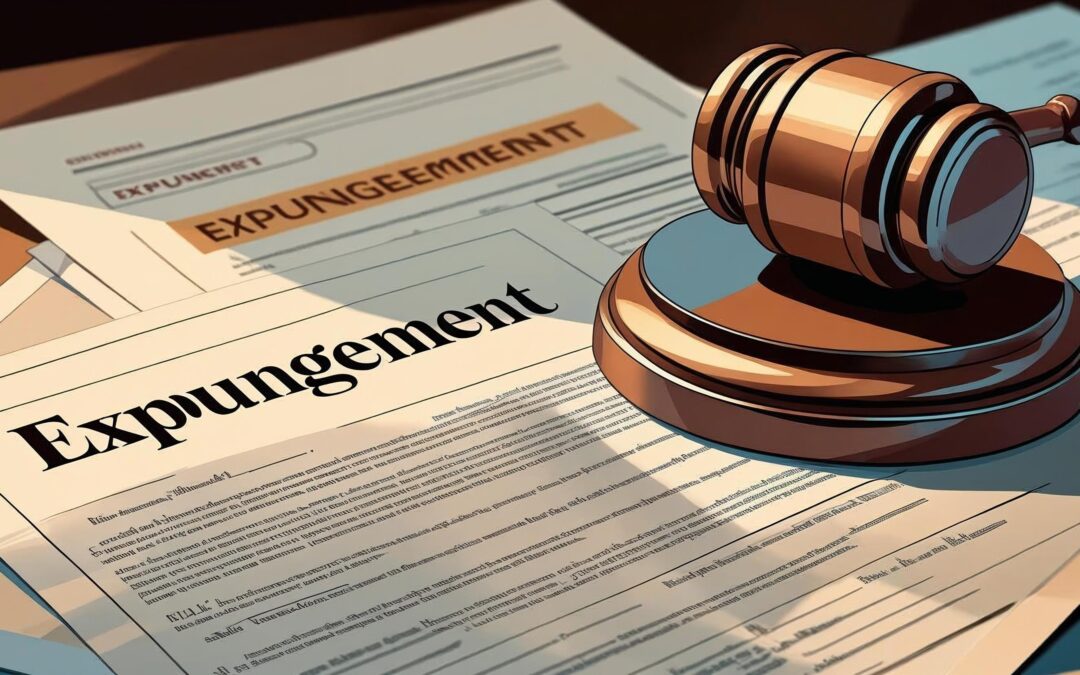If you’ve ever been arrested—even if you weren’t convicted—you probably already know how much that record can hold you back. Employment, housing, professional licenses, even volunteer work—all of it can be affected by a background check. That’s why understanding the Texas expungement process is so important. Clearing your record can mean reclaiming your future, but it doesn’t happen overnight.
What most people don’t realize is that arrests can show up for years—even if no charges were filed. That lingering mark can affect your confidence, reputation, and opportunities in ways you never expected.
In this detailed guide, we’re breaking down the Texas expungement process in plain English. From eligibility rules to paperwork timelines, and real-life stories of people who successfully had their records cleared, we’ll show you how the process works—and how long it actually takes. If you’re hoping to move forward, this is the first step.
Think of this as your roadmap out of the shadows and back into control of your personal narrative. The path isn’t always quick, but with the right information, it’s absolutely achievable.

What Is Expungement in Texas?
The Legal Eraser
Expungement, or “expunction” as it’s formally called in Texas law, is the legal process of erasing an arrest or charge from your criminal record. When a court grants an expunction, all agencies involved—law enforcement, court clerks, DPS—are ordered to destroy or return records related to the arrest or case.
That means:
- The record is removed from public databases
- You can legally say the incident never happened
- Background checks come back clean
Understanding the Texas expungement process gives you the chance to truly start over. But the process is more like running a marathon than flipping a switch.
Who Qualifies for Expungement?
Not Every Case Is Eligible
One of the biggest misconceptions about the Texas expungement process is that anyone with a criminal record can apply. Unfortunately, that’s not true. Texas law limits expunction to specific scenarios:
You may be eligible if:
- You were arrested but never formally charged
- Your case was dismissed
- You were acquitted at trial (found not guilty)
- You were convicted but later pardoned
- You completed a pretrial diversion program
- The offense was a qualifying juvenile offense
- You were a victim of identity theft and arrested under someone else’s name
Convictions for most adult offenses—especially if you pled guilty or no contest—cannot be expunged, though you might qualify for a nondisclosure order instead (which seals but doesn’t erase the record). Understanding the difference betweenexpungement vs nondisclosure is crucial, as each offers different levels of privacy and eligibility depending on your case.
If you’re unsure where you stand, a criminal defense attorney can evaluate your case and determine whether the Texas expungement process is an option.

Real-Life Example: James and the Job That Got Away
James, a 32-year-old from Houston, was arrested in his early 20s after a college party got out of hand. He was never charged, and the case was dismissed, but that arrest still showed up on every background check.
When he applied for a bank job a decade later, the employer turned him down because of the arrest record—even though it led nowhere.
That rejection pushed James to look into the Texas expungement process. With an attorney’s help, he filed the paperwork, waited for the hearing, and finally had his record expunged. Six months later, he reapplied to the same company and got hired.
His story is a perfect example of why timing and accuracy matter when pursuing an expunction.
Step-by-Step Breakdown of the Texas Expungement Process
Step 1: Confirm Eligibility (Immediately)
The first step in the Texas expungement process is to determine whether you qualify. You’ll need to:
- Review your case details
- Check the final disposition of your charge
- Identify the legal basis for your request (dismissal, acquittal, etc.)
An attorney can help with this step, or you can request certified copies of your case from the county clerk’s office. If you don’t meet the legal criteria, filing a petition will waste time and money.
Step 2: Wait Out the Mandatory Period (Varies)
Texas law imposes mandatory waiting periods before you can file for expunction. These vary based on how your case was resolved:
- Arrest but no charge filed: 180 days from the date of arrest (Class C misdemeanors), 1 year (Class A or B), and up to 3 years for felonies
- Dismissed cases: You must wait until the statute of limitations expires unless the prosecutor agrees
- Acquittals: Immediate eligibility
- Pardons: Immediate eligibility
- Juvenile records: Varies depending on the offense
This waiting period can be frustrating, but it’s a non-negotiable part of the Texas expungement process. Filing too early can lead to automatic rejection.
Step 3: File the Petition for Expunction (1–2 Weeks)
Once you’re eligible, it’s time to prepare and file your Petition for Expunction with the district court in the county where the arrest occurred.
You’ll need to include:
- Personal identifying information
- Arrest or case numbers
- Dates of arrest and dismissal
- All agencies involved (police, jail, court, DPS)
- Certified disposition documents
- Reason for eligibility
Filing fees can range from $300 to $500, though some courts waive fees for indigent petitioners. If done correctly, this paperwork kicks off the formal Texas expungement process and starts the court timeline.
Step 4: Notify Government Agencies (Within 30 Days of Filing)
After your petition is accepted, the court clerk will notify all agencies listed on your paperwork. These may include:
- Local police departments
- County jail
- Texas Department of Public Safety
- County and district attorneys
- The FBI (if federal databases were updated)
Each agency has the right to object to your request, though most don’t if the case clearly qualifies. Still, this notification period adds time to the overall Texas expungement process.
Step 5: Court Hearing (30–90 Days After Filing)
In many counties, you’ll be scheduled for a hearing within one to three months after filing. If no one objects, the judge may approve your petition without a hearing. But if the court or agencies raise concerns, a hearing becomes mandatory.
At the hearing, your attorney can:
- Present evidence
- Confirm your eligibility
- Respond to any objections
- Request expedited destruction of records
If all goes well, the judge signs an Order of Expunction—the key document that triggers the clearing of your record.
Step 6: Record Destruction (Up to 6 Months)
Even after the judge grants the expunction, the process isn’t instant. Government agencies are given up to 180 days to destroy or return the records. This includes electronic databases, physical case files, mugshots, and fingerprint records.
Agencies are required by law to confirm compliance with the court’s order. Once all confirmations are filed, the Texas expungement process is complete.

So How Long Does the Entire Process Take?
The Realistic Timeline
While some cases move faster, most expungements in Texas take six months to a year from start to finish.
Here’s a quick timeline breakdown:
- Eligibility review: Immediately
- Waiting period (if required): 6 months to 3 years
- Filing and preparation: 1 to 2 weeks
- Agency notification: Up to 30 days
- Hearing and court approval: 1 to 3 months
- Record destruction: Up to 6 months
It’s not a fast fix—but for many, it’s a life-changing one. That’s why understanding the Texas expungement process is essential for anyone looking to clear their name.
Real-Life Example: Sarah’s Fresh Start
Sarah was arrested in San Antonio for shoplifting at 19. The case was dismissed when it turned out to be a mistake—security footage proved she wasn’t the person in question. But that arrest haunted her for years.
Every job application that required a background check made her stomach drop. Employers asked questions. Some never called back. Finally, at 26, she hired an attorney and began the Texas expungement process.
Eight months later, the record was gone. She applied for a role at a hospital—and got it. For Sarah, the wait was worth it.
Common Mistakes That Delay the Process
Don’t Let These Errors Cost You Time
- Filing too early before the waiting period expires
- Listing incorrect or incomplete agency names
- Failing to attach certified documents
- Using the wrong court jurisdiction
- Not responding to objections or court notices
Working with a qualified attorney can help you avoid these pitfalls and keep the Texas expungement process on track.
Should You Hire an Attorney?
Why Legal Help Pays Off
Expungement is legally technical. While you’re allowed to file on your own, a single mistake can cost you months or even disqualify your petition. An attorney helps by:
- Confirming eligibility
- Preparing airtight petitions
- Representing you at the hearing
- Ensuring all deadlines are met
- Communicating with government agencies
Given how high the stakes are, it’s often worth the investment—especially for professional licenses, government jobs, or clean-slate immigration filings.

Final Thoughts: Understanding the Texas Expungement Process
Having a criminal record—even an arrest that went nowhere—can affect every part of your life. But in Texas, the law gives you a chance to clear that slate—if you qualify and follow the process correctly.
From eligibility checks to mandatory waiting periods, to paperwork and court hearings, the Texas expungement process isn’t easy. But with patience, persistence, and a solid legal plan, it is absolutely achievable.
If you’re ready to take back your future, now’s the time to start. Understand your rights, check your record, and take the first step toward leaving the past where it belongs—behind you.


